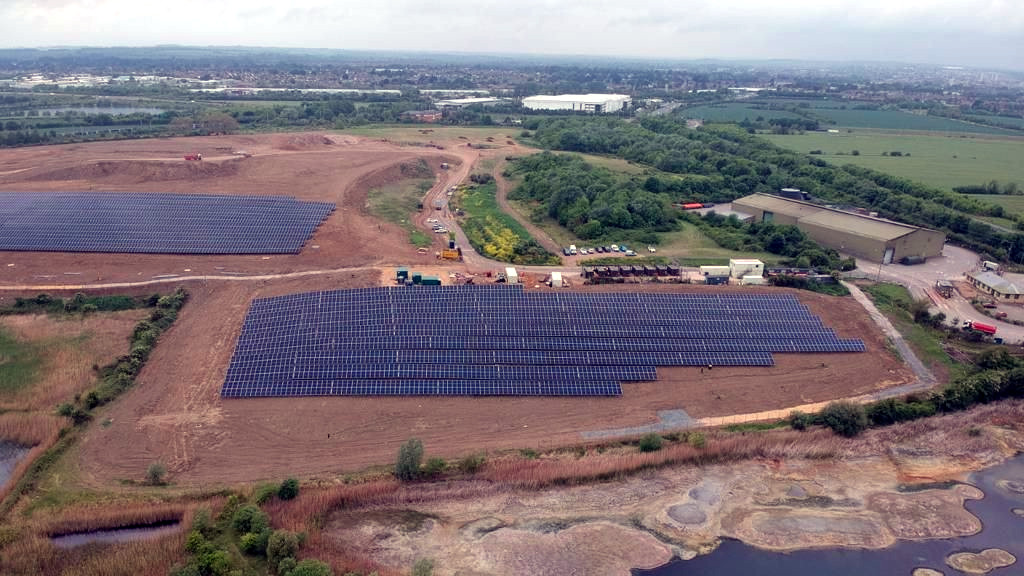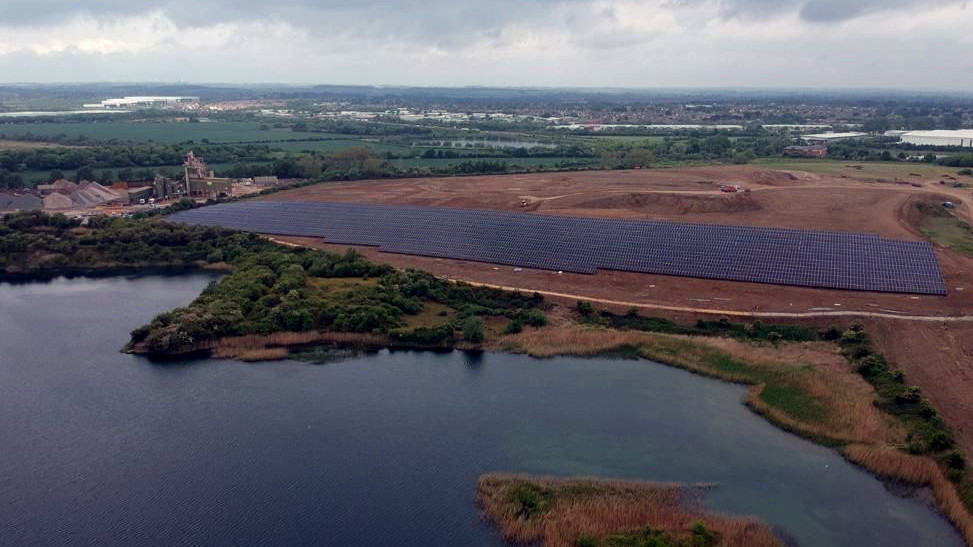Evolution in renewable energy
The Bedford Borough Council’s restoration of their Elstow landfill is a shining example of how solar power can be used to benefit an entire community. Our work on this project has led to the installation of 4 hectares of solar panels – which will capture the sun’s energy and convert it into electricity. This electricity will then be used on-site to reduce the need for carbon-based energy. Plus, any excess is being fed into the national grid and local electric vehicle charging points.
From the old to the new, our work at Elstow Landfill is leading a revolution in renewable energy. We have installed over 4 hectares of solar panels that will capture and convert the sun’s rays into electricity – all without harming the surrounding environment. This sustainable technological solution reduces the impact of climate change by eliminating fossil fuel dependence while providing power for the local Bedfordshire community. The Elstow Solar Farm represents what value the Wiser Environment team can bring to help organisations reach their sustainability goals.
We first began working closely with the Bedford Borough Council since the site ceased accepting waste in 1998. Our teams provided bespoke permitting and planning support to enable the accelerated capping and restoration programme. This helped to mitigate the landfill from emitting harmful greenhouse gases and polluting nearby surface water.
The restoration programme also gave us the opportunity to install a 5.5 MW solar array. Our Resources and Energy department successfully presented the solar array concept designs to the Bedford Borough Council and the Planning Authority. We also acted as the principal consultant for the feasibility studies and technical assessments that were carried out to allow planning permission to be granted.

Making the Most From Restoring Closed Landfills
Old landfills are a perfect location for solar panels. Not only do they have ample space to install large-scale photovoltaic systems, but these old sites also offer great sun exposure and can be restored at a cost-effective rate. Our team working on the Elstow landfill restoration project had a self-funded and commercially friendly mindset and approach throughout. This focus enabled our team to source funding for the 12 thousand photovoltaic modules that cover Elstow landfill’s expansive southern slope.
Using the Latest Energy Storage Technology
Going further, our Resources and Energy team also helped Bedford Borough Council to install the latest energy storage technology in the form of long-lasting battery storage units. Solar panels rely on batteries to store the energy they generate during the day. This allows the energy to be used at night or during power outages. While there are many different types of battery storage units on the market, not all of them are equally well suited for solar panel applications.
Our consultation with Bedford Borough Council found that the best storage units for solar panels are those that offer a long lifespan and high energy density. Lithium-ion batteries are a good choice for solar panel applications, as they can last for many years and store a large amount of energy per unit of weight. The Resources and Energy team also considered charge and discharge rates, depth of discharge and operating temperature range. By taking all of these factors into account, we were able to choose a battery storage unit that will provide reliable power for the Elstow Solar Farm solar panel system for many years to come.
Overall, this project represents an exciting leap forward for solar power and renewable energy. The Elstow Solar Farm is a brilliant example of how targeting environmental development can lead to meaningful steps towards combating climate change, maintaining a sustainable future and creating jobs in the local community.

